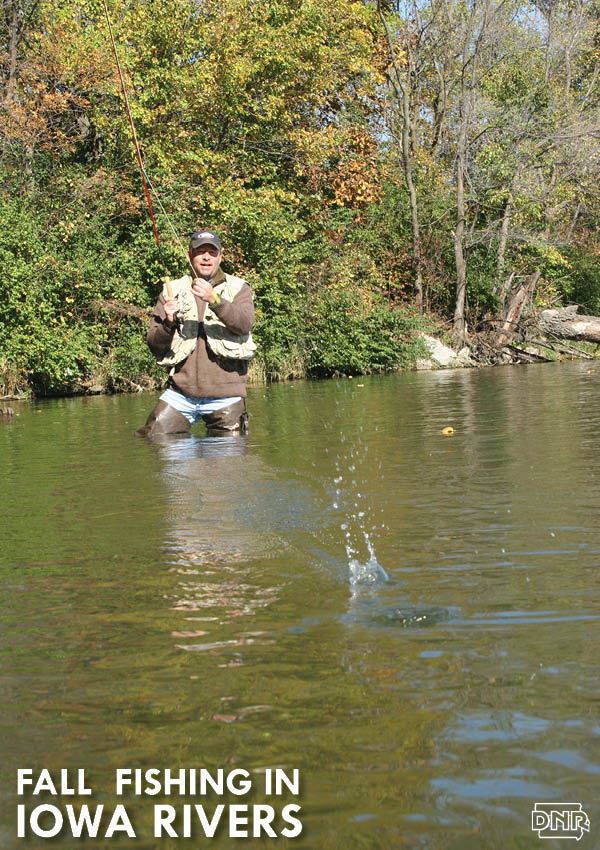Enjoy Iowa’s natural landscapes fishing Iowa’s rivers and streams this fall. A unique angling challenge is hidden around every bend.
“You are never far from one of Iowa’s many rivers,” said Greg Gelwicks, Iowa DNR interior rivers research biologist. “Fall is a great time to give them a try.”
Fish become more active as the stream temperature drops. “Look for actively feeding fish where riffles enter pools or rocky areas,” Gelwicks said. “They can sit there out of the current and wait for food to come by.”
 Find catfish, walleye, sauger and bass close to natural or manmade habitat features such as riffles, log-jams or rock. Smaller fish like shiners and minnows are attracted to hiding and resting spaces found within habitat features and predators feed around these features.
Find catfish, walleye, sauger and bass close to natural or manmade habitat features such as riffles, log-jams or rock. Smaller fish like shiners and minnows are attracted to hiding and resting spaces found within habitat features and predators feed around these features.
Small “up-river” segments of interior rivers can be fantastic for walleye and smallmouth bass in early fall. Use crankbaits and spinners to catch smallmouth bass and crankbaits or jigs with crawlers for walleye. Try the upper Wapsipinicon River (Buchanan and Linn counties) or upper Cedar River (Black Hawk and Bremer counties) for smallmouth bass. The Shell Rock River (Butler and Bremer counties) or upper Cedar Rivers (Black Hawk or Bremer Counties) are a great choice for walleye.
“The Missouri and Mississippi rivers boast some of the best flathead catfishing in the Midwest,” said Jon Christensen, DNR natural resources technician. The Missouri River’s swift current, rocks and snags are good habitat and food is abundant for these predatory catfish. Use live fish as bait; green sunfish and bullheads tend to survive best on the hook.
“Blue catfish are becoming more common in the Missouri River,” said Christensen. Several state record fish have been caught on the Missouri River, including the blue catfish (101 pounds) and channel catfish (38 pounds 2 ounces).
An extensive list of Iowa’s rivers, with information on access points and native species, is available on the DNR website at fishing.iowadnr.gov.